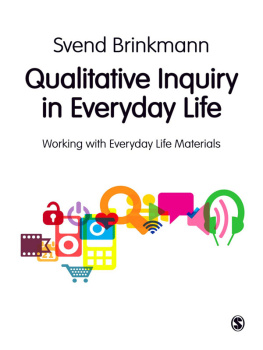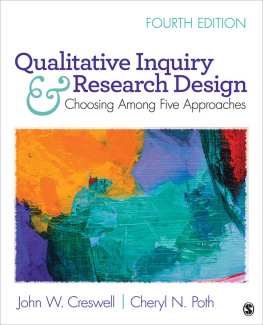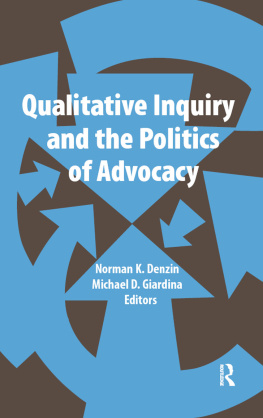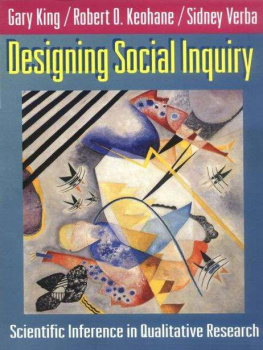What happens when we thinkteach qualitative (in)query with uncertain, (w)rest(full), relational liveliness? In Speculative Pedagogies of Qualitative Inquiry , Kuby and Christ slow down to engage in and with moments sparked by their own pedagogies and muse on the nuances of (in)query practices. A lovely text to think-with and teach-with.
Kelly W. Guyotte , Assistant Professor of Qualitative Research, University of Alabama
Speculative Pedagogies of Qualitative Inquiry
In Speculative Pedagogies of Qualitative Inquiry, the authors discuss what inquiry is and how we teach it and if it is even possible to teach. With a proliferation of how-to manuals for doing qualitative research, the time is ripe for a discussion not only on what we teach (curriculum) but also how we teach (pedagogy).
This book seeks to teach students to become qualitative inquirers, not with a formulaic recipe but rather by showing them how to think from a place of uncertain, (w)rest(full), relational liveliness. The authors seek to create qualitative inquiry courses that create spaces that consider our abilities to respond to, come to know (epistemology), be (ontology), and do (axiology) qualitative inquiry. Thus, a main thread of this book is (re)thinking and (re)imagining inquiry that they come to conceptualize as (in)query. The authors use both data from graduate level research courses and theoretical concepts from poststructuralism, posthumanism, and feminist new materialism.
This book is timely in the face of a growing neoliberal academy that values prescription and repetition over innovation, thinking differently, and engaging with research. It will be an invaluable resource for graduate students looking to use qualitative inquiry in their research.
Candace R. Kuby is Associate Professor of Learning, Teaching, and Curriculum at the University of Missouri serving as Department Chair and Director of Qualitative Inquiry. Her research interests include the coming-to-be of literacies when children work with artistic and digital tools, and approaches to and pedagogies of qualitative inquiry.
Rebecca C. Christ is Assistant Professor of Social Studies Education in the Department of Teaching and Learning at Florida International University. Her research interests include social studies education, specifically focusing on the area of genocide education, and pedagogies of qualitative inquiry, drawing on poststructural and posthuman theoretical concepts.
First published 2020
by Routledge
2 Park Square, Milton Park, Abingdon, Oxon OX14 4RN
and by Routledge
52 Vanderbilt Avenue, New York, NY 10017
Routledge is an imprint of the Taylor & Francis Group, an informa business
2020 Candace R. Kuby and Rebecca C. Christ
The right of Candace R. Kuby and Rebecca C. Christ to be identified as authors of this work has been asserted by them in accordance with sections 77 and 78 of the Copyright, Designs and Patents Act 1988.
All rights reserved. No part of this book may be reprinted or reproduced or utilised in any form or by any electronic, mechanical, or other means, now known or hereafter invented, including photocopying and recording, or in any information storage or retrieval system, without permission in writing from the publishers.
Trademark notice: Product or corporate names may be trademarks or registered trademarks, and are used only for identification and explanation without intent to infringe.
British Library Cataloguing-in-Publication Data
A catalogue record for this book is available from the British Library
Library of Congress Cataloging-in-Publication Data
A catalog record for this book has been requested
ISBN: 978-0-367-25047-8 (hbk)
ISBN: 978-0-367-25046-1 (pbk)
ISBN: 978-0-429-28570-7 (ebk)
Typeset in Bembo
by Apex CoVantage, LLC
For Mom, my first pedagogist of speculative inquiry.
and
For Becky, because of you (us) I am qualitatively (be[com]ing) different.
Thank you both.
Candace
For Maria and Ellie, two of the main reasons I do this work.
and
For Candace, who gave me permission even when I didnt really need it.
Thank you.
Becky
Source : Book cover art by Amber Ward.
Book cover image: Amber Ward
Source : Artwork by Amber Ward
We often joke of the not-yet-to-come of us. Or said another way, we are often surprised at how we work together and what becomes of our be(com)ing us. Inspired by a quote by Erin Manning and Brian Massumi (2014), when skulls bump, the resulting brain-wave interference-patterns can be a revelation to both (p. viii). We are energized, we become anew, we create, we think, we write, and we teach when our skulls bump. We love our skulls bumping. We cant imagine life without them bumping. It is life-giving and sustaining. Thus, we start our acknowledgments with a reciprocal acknowledgment of us each other and how this book would not be without our relationship to/with each other. Gratefully, thank you.
Collectively, we also thank the following for their contributions to this book coming to be:
- First, we thank the many graduate students in our qualitative research courses. Some are named (with pseudonyms) in this book through transcripts and/or artwork. Others are not named but very much inspired our thinking and writing of this book and other publications.
- We are grateful to the many scholars and theorists that we think(ed)-with as we wrote this book. Our reference list points them out by name, but many others we read and think(ed)-with havent made it into this book but nonetheless inspire our thinking and teaching.
- We thank our team at Routledge: Hannah Shakespeare, Matt Bickerton, the anonymous peer reviewers, the copy editors, and the production team. Thanks for helping us make our vision a reality!
- To colleagues that gave feedback and/or thoughts during various presentations at conferences of this work and draft versions of this manuscript. The insights were instructive as we crafted this book. And to those who inspire new thinking with/in us even without a manuscript immediately in mind.
- We thank our academic institutions for trusting us with the spaces to teach and think about speculative pedagogies of qualitative inquiry.
- We are also immensely grateful for technologies such as Box, Zoom, and Google Drive as most of this book was written when we lived in two different states. We are also grateful for the times we had physically in the same location and the artistic materials we used to think-with for writing/thinking/be(com)ing.
- Finally, we are deeply grateful and inspired by the artists whose artwork appears in the book. We chose to include some art from our students, and so, they are thanked by their pseudonyms: Anna, Dianna, Gigi, Kristin, Niki, and Rayna. We also invited colleagues/friends to create art for the purpose of this book, and we are thrilled with how we (and you) interacted with the creations! Many thanks to Amber Ward for the book cover art and two images within the manuscript. Bianca Boshoff, Elmarie Costandius, Lauren Hermann, Nike Romano, and Traci L. Wilson-Kleekamp each have artwork within the book as well. Please see the list of figures to identify the artist and their artwork in the book. We pause to share a note on artwork in this book, inspired by Anna Lowenhaupt Tsings (2015) description on the photographs included in her book. She writes, the photographs tell a story alongside the text but do not illustrate it directly. I use images to present the spirit of my argument rather than the scenes I discuss (Tsing, 2015, p. viii). We too include artwork throughout the book, particularly the opening page of each chapter, not as illustrations and/or representations of the chapter but as invitations, provocations, and musings in their own right but also in relation to the text. Again, to all the artists, thank you for sharing your gifts with us all!






